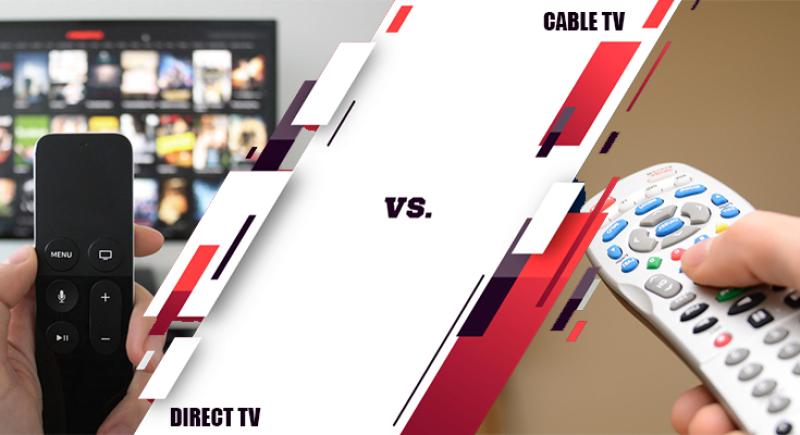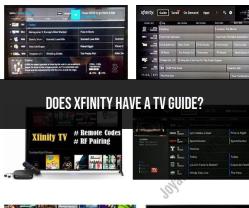Which is better cable or Direct TV?
Choosing between cable and DirecTV (a satellite television service) depends on various factors, including your preferences, needs, and the options available in your location. Both cable and DirecTV have their own advantages and considerations. Here are some key points to help you make an informed decision:
Cable TV:
Pros:
Wide Availability: Cable TV is widely available, especially in urban and suburban areas. It uses cable infrastructure to deliver signals to your home.
Channel Lineup: Cable providers typically offer a diverse range of channel packages, including local channels, sports channels, and premium networks.
Reliability: Cable TV tends to be more reliable during inclement weather compared to satellite TV. It is not affected by rain or snow as much as satellite signals.
Bundling Options: Cable providers often offer bundles that include not only TV services but also high-speed internet and sometimes phone services.
Cons:
Limited Availability in Rural Areas: In some rural areas, cable infrastructure may not be as widespread, limiting availability.
Potentially Higher Costs: Cable TV plans can sometimes be more expensive than satellite TV, especially when considering additional fees and equipment costs.
DirecTV (Satellite TV):
Pros:
Wider Availability: DirecTV has a broader geographic reach, making it available in more remote or rural areas where cable may not be an option.
Extensive Channel Options: DirecTV offers an extensive array of channels, including sports packages and premium networks.
High-Definition (HD) Content: DirecTV is known for providing a large selection of channels in high-definition format.
DVR Options: DirecTV provides advanced DVR options, allowing users to record and store a significant amount of content.
Cons:
Weather Interference: Satellite TV signals can be affected by adverse weather conditions such as heavy rain or snow, potentially leading to signal loss.
Contract Commitments: DirecTV often requires subscribers to sign contracts, and early termination fees may apply if you cancel before the contract term ends.
Equipment Costs: There may be additional costs for equipment such as satellite dishes and receivers. Installation fees may also apply.
Considerations for Your Decision:
Location: Check the availability of cable and DirecTV services in your specific location, considering both urban and rural settings.
Channel Preferences: Evaluate the channel lineups offered by both cable and DirecTV to ensure they include the channels you want.
Weather Conditions: Consider the climate in your area. If you experience frequent heavy rain or snow, cable may be a more reliable option.
Contract Terms: Review the contract terms and commitments associated with both cable and DirecTV services. Determine whether you prefer the flexibility of month-to-month plans or are comfortable with a contract.
Cost: Compare the overall costs, including monthly fees, equipment costs, and potential installation fees. Be aware of any promotional pricing that may expire after a certain period.
Bundling Options: If you are interested in bundling TV with internet or phone services, check the bundling options provided by cable providers.
Ultimately, the "better" choice between cable and DirecTV depends on your specific needs, location, and preferences. Consider the factors mentioned above and compare the offerings of cable and DirecTV providers in your area to make the right decision for your entertainment needs.
Deciding between cable and DirecTV is a contest with no clear-cut winner! Both offer advantages and disadvantages, and the "better" option ultimately depends on your individual needs and preferences. Let's explore the key factors to consider:
1. The "Better" is Relative:
There's no definitive answer. What shines for one person might be a bust for another. Consider your viewing habits, budget, location, and technical considerations before making a call.
2. Factors to Consider:
- Channel Selection: Compare basic, sports, premium, and local network offerings based on your viewing preferences.
- Pricing: Analyze base prices, promotional deals, hidden fees, and potential equipment costs.
- Equipment and Installation: Assess potential charges for set-top boxes, modems, and professional installation.
- Service Availability: Check if both options are available in your area and compare signal quality and potential weather impact.
- Contract Terms: Review contract lengths, early termination fees, and potential changes after promotional periods.
- Customer Service: Research online reviews and user experiences to gauge satisfaction with support in resolving issues.
3. Feature and Offering Differences:
- Cable: Often offers wider local network coverage, but channel packages and internet availability might be limited.
- DirecTV: Delivers satellite-based service, potentially reaching rural areas where cable isn't available. May offer exclusive channels and sports packages.
4. Quality and Customer Satisfaction:
Both options have good and bad experiences reported by users. Research online reviews and compare customer satisfaction ratings to get a general sense, but remember individual experiences can vary.
5. Suitable Options:
- Cable: Ideal for urban or suburban areas with diverse channel preferences and existing cable infrastructure.
- DirecTV: Excellent choice for rural locations, sports enthusiasts seeking exclusive channels, or those willing to pay for additional features.
Remember:
- Research and compare specific plans and offers from both providers based on your unique needs and location.
- Don't get swayed by introductory deals – analyze long-term pricing and potential hidden fees.
- Consider alternative options like streaming services if they better suit your viewing habits and budget.
- Choose the option that aligns with your preferences, offers channels you actually watch, and fits your financial limitations.
Ultimately, the decision boils down to what best suits your specific viewing habits, budget, and location. Weigh the pros and cons, do your research, and choose the channel champion that resonates with you!












